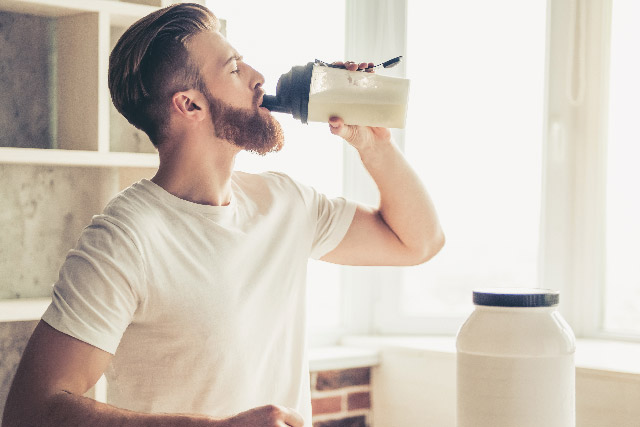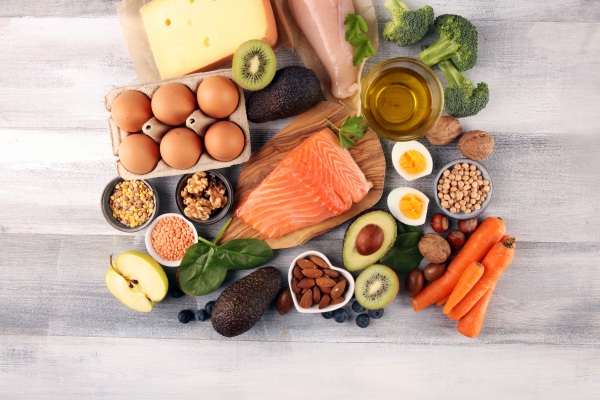Whey vs. Yeast Protein: A Science-Backed Guide to Muscle Growth, Recovery & Clean Nutrition
Let’s face it, choosing the “best” protein can feel like standing in a supplement aisle with way too many options and not enough clarity. But here’s the thing: there’s no one-size-fits-all answer. Your ideal protein depends on your body needs, lifestyle, and even your values.

If You’re Focused on Muscle Building
Whey protein is hard to beat. It’s fast-digesting, high in leucine (which your muscles love), and has decades of research backing its benefits. Most people looking to put on lean muscle or recover post-workout find whey isolate or hydrolysate works best, especially if they train hard and often.
If You’re Vegan or Dairy-Sensitive
Yeast protein might be your new best friend. It’s completely plant-based, free from lactose, and often easier on the stomach. Plus, it’s more than just “vegan”; it’s sustainable, hypoallergenic, and offers steady energy thanks to its slower digestion.
If You Want to Feel Full Longer
Here’s where yeast protein really shines. Its natural fiber content means it keeps you satisfied for hours—making it perfect for weight management or when you’re trying to reduce snacking. A scoop in your morning smoothie might carry you till lunch without a rumbling stomach.
If Budget Matters
Whey protein (especially concentrate) is generally more affordable and easier to find in India. Yeast protein is still catching up in both price and availability, but may be worth the investment for those seeking clean-label, allergen-free options.
If Taste and Texture are Deal Breakers
Most people agree that whey wins in flavour and mixability. Yeast protein has a bit of an earthy undertone; it’s not unpleasant, just different. Blending it with cocoa, vanilla, or even banana can easily mask the taste.
Whey vs. Yeast Protein: Which is Better?
Instead of asking, “Which protein is better?” ask, “Which protein is better for me?” Your workout style, dietary needs, ethical beliefs, and budget all play a role. Some even blend both, using whey for post-workout shakes and yeast protein in their meals for slow, steady nourishment. It’s not about choosing sides. It’s about choosing smart. Whey vs. Yeast Protein should be the secondary question, as it all depends on your requirements, palatability, availability, and taste preferences.
Whey vs. Yeast Protein: Nutritional Comparison
Choosing the right protein isn’t just about the label; it’s about how your body responds to what’s inside. When comparing whey and yeast protein, a closer look at their amino acid makeup, absorption rates, and overall biological performance helps make sense of which protein suits your needs.
Parameters | Yeast Protein | Whey Protein |
Protein (as is) | 85%* | 78%* |
Protein (dry basis) | 80%* | >80%* |
Energy | 414.6 kcal* | 409 kcal* |
Carbs | 7.1 g* | 7.7 g* |
Fiber | 5.5 g* | 0 g* |
Fats | 6.8 g* | 7.4 g* |
Cholesterol | 0 mg* | 308 mg* |
Sodium | 336 mg* | 221 mg* |
Amino Acid Profile | Complete | Complete |
Allergens | No | Milk & Soy |
Vegan Friendly | Yes | No |
PDCAAS Value | 1 | 1 |
Amino Acid Profile
The nine essential amino acids are present in both yeast and whey protein, making them complete proteins. However, the concentration and balance are different:
Whey Protein
Rich in leucine (~11g/100g), an essential amino acid that promotes the synthesis of muscle protein. Additionally, whey provides a high concentration of total BCAAs (~25g/100g), which are essential for muscle repair.
Yeast Protein
It is also complete, it normally contains 6–7g of leucine per 100g. It nevertheless offers a significant amount of BCAAs (~18g/100g), however not as much as whey, added health benefits are provided by its fiber content and extra nutrients like beta-glucans.
Absorption & Digestion
With a PDCAAS of 1.0, whey protein exhibits exceptional absorption and digestion. It is ideal for post-workout nourishment because it is absorbed quickly.
Muscle Building Potential
Whey has an advantage for muscle growth and post-exercise recovery because of its increased leucine content and quick absorption. Although it acts more slowly, yeast protein promotes continuous muscle repair, which makes it perfect for anyone who needs to maintain amino acid levels or for overnight recovery or intermittent fasting.
Satiety and Weight Management
Because yeast protein has higher fiber, users will feel fuller for longer. Because of this, it is a good option for controlling hunger, losing weight, or keeping a calorie deficit.
Unless paired with fiber or lipids, whey protein may not provide prolonged satiety, but it can help with post-exercise fat metabolism by promoting a quicker insulin response.
Health Benefits
Whey protein is well known for lowering cortisol levels during strenuous exercise, improving immunological response, and lowering blood pressure. Beta-glucans, which are found in yeast protein, have been shown to enhance gut microbiota, boost the immune system, and perhaps lower cholesterol.
Whey protein shines when fast recovery and muscle gains are your top priority. Yeast protein, however, offers a unique combination of digestive comfort, fiber, and sustainability, making it a smart choice for everyday wellness, long-term health, and eco-conscious living.
Practical Use Cases
The way you use protein supplements depends heavily on your lifestyle, health goals, and personal values. From gym-goers to clean-eating vegans, both whey and yeast protein serve different needs. Let’s explore how each one fits into practical, real-world situations in 2025.
Muscle-Building & Athletic Performance
Whey protein remains the gold standard for athletes and fitness enthusiasts looking for fast recovery and lean muscle growth. Its high leucine content and quick absorption make it ideal for use immediately after workouts, where your muscles need rapid repair.
In contrast, yeast protein is better suited for slow and sustained amino acid release, which benefits endurance athletes, night trainers, or those following intermittent fasting. It fuels the body gradually and may support overnight recovery when taken before bed.
Weight Management & Satiety
For individuals trying to manage weight or control hunger:
· Yeast protein offers a natural edge due to its fiber-rich content and slower digestion rate, helping you stay full longer. This makes it perfect for meal replacement shakes or midday snacks.
· Whey protein works well for those who need a quick energy boost or are looking to speed up post-workout metabolism. However, it may leave you hungry sooner if consumed alone.
Digestive Sensitivities & Allergies
Choosing the right protein also depends on how your body tolerates it:
· Yeast protein is naturally free from lactose, gluten, and soy, making it a great pick for people with allergies or intolerances.
· Whey protein, especially in hydrolyzed or isolated form, can be gentler on digestion, but it still originates from dairy, so not ideal for vegans or the severely lactose intolerant.
Product Recommendations by Use Case
· Post-workout: Whey isolate or hydrolysate for fast muscle recovery.
· Meal replacement: Yeast protein blends with added fiber support satiety and gut health.
· For sensitive digestion: Hydrolyzed whey or fermented yeast protein is gentle and effective.
Health Considerations & Allergies
Protein supplements are widely used for fitness and wellness, but health sensitivities and individual needs must be considered before choosing one. From lactose intolerance to gut comfort and allergen-free formulations, here’s how whey and yeast proteins compare.
Whey Protein
Whey protein is nutritionally complete and rich in bioactive compounds, but since it’s dairy-based, it can cause issues for some individuals.
· Lactose Sensitivity: People who are lactose intolerant may experience bloating, gas, or discomfort after consuming regular whey, especially concentrate.
· Dairy Allergies: Those with milk protein allergies must avoid whey completely, as even trace amounts can trigger reactions.
· Digestive Concerns: Some may find whey difficult to digest, particularly in large doses or when taken on an empty stomach.
· To address this, whey protein isolate (WPI) and hydrolyzed whey protein offer alternatives with minimal lactose and enhanced digestibility. Hydrolysates, in particular, are pre-digested, making them suitable for those with mild sensitivities. Additionally, whey contains bioactive peptides, which may help regulate blood pressure, reduce inflammation, and support immune function, a bonus for those focused on overall wellness, not just muscle gain.
Yeast protein stands out as a hypoallergenic, dairy-free, and vegan option.
· Free from Common Allergens: Naturally free of lactose, soy, gluten, and nuts, it’s an excellent choice for those with food intolerances.
· Supports Gut Health: Some forms of yeast protein (especially those rich in beta-glucans and fiber) may support digestive health, regulate bowel movements, and promote a healthy gut microbiome.
· Immune Benefits: Beta-glucans in yeast have been shown to enhance immune response and may help reduce inflammation markers in the body.
However, individuals with yeast sensitivities or underlying fungal allergies should proceed with caution. While rare, these sensitivities can cause unwanted reactions.
About Angel Yeast
Founded in 1986, Angel Yeast Co., Ltd specializes in the production of yeast and yeast derivatives. Its product range includes baker's yeast and ingredients, Chinese dim sum and seasoning, savory yeast extract, human health, animal nutrition, plant nutrition, distilled spirits and biofuels, microbial nutrition and enzymes. At present, Angel Yeast has 11 international advanced production bases in China, Egypt and Russia, and provides products and services for more than 150 countries and regions globally.
About Angel Yeast Extract-Savoury
Angel YE (yeast extract) made from edible yeast, by degradation the protein and nucleic acid in the yeast cells into nutritional seasonings with the application of modern biotechnology, has the advantages of increasing the fresh flavor, reducing salt, balancing the odor, strong tolerance and food properties, which promotes the global healthy operation of salt reduction and "clean label ".
Press Contact
ANGEL YEAST CO.,LTD
Address: 168 Chengdong Avenue, Yichang, Hubei 443003, P. R. China
Tel: +86-717-6369520, 6369558
Fax: +86-717-6370680
Email: yefood@angelyeast. com







